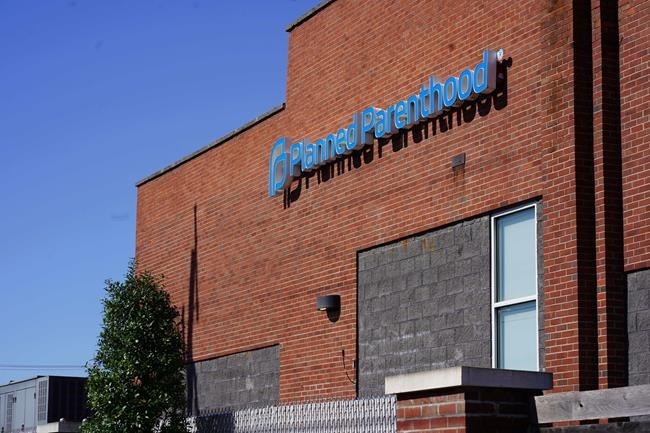LOUISVILLE, Ky. (AP) ÔÇö A judge cleared the way Thursday for abortions to resume in Kentucky, temporarily blocking the stateÔÇÖs near-total ban on the procedure that was triggered by the Supreme Court ruling that overturned Roe v. Wade.
Abortion-rights groups fought for the ruling that pauses the 2019 Kentucky law for now. Under the so-called trigger provisions, abortions ended abruptly June 24 once the federal constitutional protections for abortions.
Since then, nearly 200 women with scheduled appointments have been turned away from EMW WomenÔÇÖs Surgical Center, one of the two Louisville abortion clinics, according to Heather Gatnarek, an attorney for the American Civil Liberties Union of Kentucky.
Planned Parenthood and the ACLU released a joint statement saying they were glad the ÔÇ£cruel abortion bansÔÇØ were blocked, adding that since last week's ruling, "numerous Kentuckians have been forced to carry pregnancies against their will or flee their home state in search of essential care. Despite this victory, we know this fight is far from over.ÔÇØ
Kentucky Attorney General Daniel Cameron, a Republican who is running for governor, said Thursday's ruling had no basis in the state constitution and that he would challenge it. ÔÇ£We will do everything possible to continue defending this law and to ensure that unborn life is protected in the Commonwealth,ÔÇØ he said in a statement.
The Kentucky case reflects the battles being waged in courthouses around the country after the Supreme Court to decide whether abortion is legal within their borders. Some of the disputes involve bans that have been on the books, unenforced, for generations. Some involve ÔÇ£trigger lawsÔÇØ that were specifically designed to take effect if Roe were to fall. Some entail prohibitions on abortion that were held up pending the ruling on Roe, and are now moving forward.
Thursday's ruling in Kentucky comes in a lawsuit filed this week on behalf of abortion clinics, which claimed women were being ÔÇ£forced to remain pregnant against their willÔÇØ in violation of the stateÔÇÖs constitution. The suit asked the judge to temporarily block the ÔÇ£trigger lawÔÇØ along with another Kentucky law that attempted to prevent abortions at six weeks of pregnancy.
Attorneys for the Kentucky clinics argued Wednesday that the stateÔÇÖs constitution protects the right to an abortion. CameronÔÇÖs legal team said no such constitutional right exists.
Jefferson County Circuit Judge Mitch Perry sided with the clinics Thursday, and agreed to temporarily block the six-week ban. That measure was previously halted by a federal court.
The trigger measure contains a narrow exception allowing a physician to perform a procedure necessary to prevent the death or permanent injury of a pregnant woman. It does not permit abortions in cases of rape or incest.
The request to continue abortion services in Kentucky ÔÇö through intervention by state courts ÔÇö could turn into a stopgap effort. Kentuckians will vote in November on a ballot initiative that, if ratified, would establish that no state constitutional right to abortion exists. Both sides of the abortion debate are busy organizing ahead of the election.
Bruce Schreiner, The Associated Press


